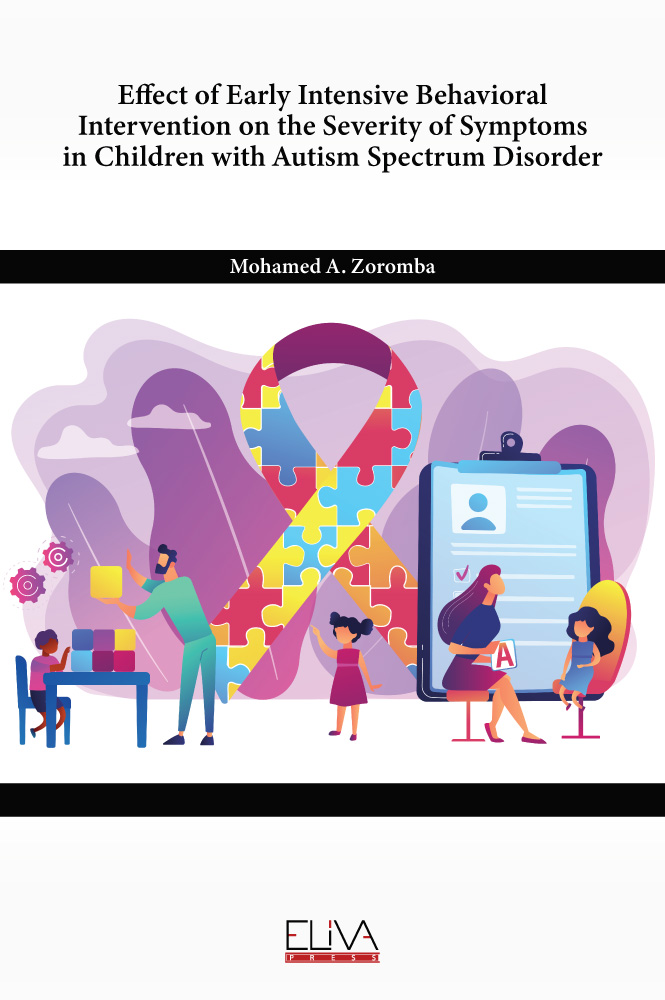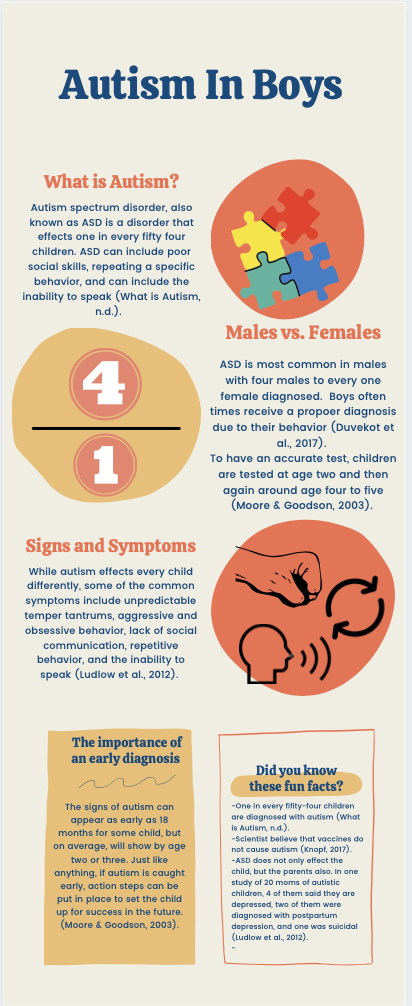Comprehensive guide for working with Autism Spectrum Therapies providers
Wiki Article
Understanding the Effect of Behavioral Autism on Day-to-day Live and Social Interactions
You might not understand just how deeply behavioral autism impacts daily life and social communications. People on the spectrum commonly navigate a world full of communication obstacles and sensory overload. These obstacles can cause irritation and isolation, impacting their connections and general health. Recognizing these nuances is vital for promoting helpful settings. What methods can we carry out to produce more comprehensive rooms and purposeful connections? The responses could shock you.Specifying Behavior Autism and Its Attributes
Behavioral autism, usually described as autism spectrum disorder (ASD), incorporates a variety of conditions characterized by obstacles in social interaction, communication, and repeated habits. You could observe that individuals with ASD commonly have a hard time to interpret social signs, which can cause misunderstandings in discussions. They may discover it difficult to develop eye call or take part in tiny talk, making social situations really feel frustrating.Interaction troubles can show up in numerous ways, from delayed speech growth to a choice for making use of fewer words. Repeated behaviors, such as hand-flapping or shaking, can offer as coping systems to manage anxiety or sensory overload. These features can exceptionally impact life, making it essential for you to understand and sustain those with ASD. By identifying these attributes, you can cultivate an atmosphere that advertises approval and urges efficient communication, helping individuals with autism grow in their daily communications.
The Range of Autism: Understanding Variability in Behavior
Autism range condition (ASD) isn't a one-size-fits-all diagnosis; it differs commonly amongst individuals. You may run into individuals who are very verbal and involve easily in conversations, while others may choose singular activities or interact non-verbally.Furthermore, the means people with ASD reply to sensory input can vary greatly; some could be overwhelmed by loud noises or intense lights, whereas others flourish in promoting environments. The spectrum also includes differences in social communications; some people may have a hard time to analyze social signs, while others browse social settings with relative ease. Comprehending this variability is vital, as it helps you appreciate each individual's special experience and tailor assistance to their particular demands, promoting an extra inclusive environment for everyone.
Communication Difficulties Faced by People With Autism
When you communicate with people on the autism spectrum, you may notice their special communication obstacles. They typically face difficulties with both spoken and nonverbal signs, which can affect their social communications. Comprehending these barriers is important for fostering better links and support.
Verbal Interaction Difficulties
Lots of individuals on the autism spectrum experience spoken communication problems that can substantially affect their day-to-day communications. You may find it challenging to share your ideas, sensations, or needs plainly. This can result in frustration for both you and those around you, as misunderstandings occur. You may battle with launching conversations, preserving a subject, or recognizing subtleties in speech. Typically, you may like utilizing easy language or repetitive phrases, which can limit your ability to involve in deeper conversations. Your tone, volume, or rate could not straighten with social expectations, triggering others to misinterpret your purposes. Recognizing these challenges can aid you and your assistance network create techniques to improve communication and cultivate much better links with others in your everyday life.Nonverbal Communication Barriers
Spoken interaction isn't the only difficulty people on the autism range face; nonverbal interaction barriers can be just as substantial. These obstacles can lead to misunderstandings or false impressions of social hints, making interactions really feel frustrating or complex. By dealing with nonverbal communication, you can find strategies to boost your social experiences and boost your general top quality of life.Social Interaction Effects
Social communications can frequently feel overwhelming due to the unique interaction difficulties dealt with by individuals with autism. Recognizing these challenges can aid you find techniques to enhance interaction, such as exercising social abilities in safe settings or using aesthetic help. Comprehending your demands enables you to browse social communications with higher self-confidence and ease.Social Interaction and Relationship Building in Autism
While structure connections can be testing for individuals with autism, recognizing their one-of-a-kind viewpoints and communication styles can foster significant connections. You could observe that lots of reference individuals on the spectrum like straight interaction and might battle with social hints or little talk. By being uncomplicated in your communications, you can aid produce a setting where they really feel comfy.Engaging in shared passions can additionally serve as a bridge to much deeper connections. Whether it's a leisure activity, a favorite program, or a mutual passion, these typical threads can open doors to friendship.
Day-to-day Live Routine: Navigating Approaches and difficulties
Maneuvering day-to-day life regimens can be especially testing for people with autism, especially when unanticipated modifications happen. To navigate these challenges, consider carrying out visual timetables or checklists.Establishing a regimen that consists of sensory breaks can also be advantageous. This helps develop an understanding atmosphere.
Finally, practice mindfulness strategies to handle stress and anxiety and stress and anxiety. Simple breathing exercises or grounding strategies can make a considerable distinction. By integrating these strategies, you can improve your day-to-day routine and minimize interruptions, making life feel a lot more manageable.
Toughness and Abilities of People on the Autism Range
Understanding day-to-day live routines is just one facet of the autism experience. Numerous people on the autism spectrum possess remarkable strengths and capabilities that set them apart. You could discover that your attention to information is exceptional, enabling you to succeed in jobs that need precision and emphasis. Your capacity to think outside package can bring about ingenious remedies in numerous situations.Moreover, your memory skills usually shine, specifically in areas of rate of interest. Autism Spectrum Therapies. This knack for maintaining information can make you a beneficial resource in areas like science, art, or innovation. You may also exhibit strong visual thinking, enabling you to imagine complicated principles and address problems creatively
Furthermore, your unique viewpoint on the world can foster empathy and understanding in others, improving social interactions. Welcoming these strengths not only increases your self-confidence but also helps others value the varied talents you give the table.
Producing Comprehensive Environments for People With Autism
Developing inclusive environments for individuals with autism starts with creating sensory-friendly rooms that cater to their one-of-a-kind demands. You can also promote chances for social communication, assisting to construct links and friendships. By making these adjustments, you'll add to a more inviting atmosphere for everybody.Creating Sensory-Friendly Spaces
While developing sensory-friendly rooms, read it's important to show on the unique requirements of individuals with autism. Incorporate quiet areas where people can charge and pull back when bewildered. Include visual routines or clear signage to assist people browse the area confidently.Advertising Social Communication Opportunities
Designing sensory-friendly rooms not just addresses specific convenience yet likewise sets the phase for significant social interactions among individuals with autism. To promote these interactions, produce inclusive environments that invite engagement. Organize organized tasks, like art classes or team games, that motivate partnership without overwhelming sensory input. Usage visual aids and clear interaction to aid everybody engage pleasantly. Urge peer mentoring, pairing people with autism with encouraging peers who can assist them via social scenarios. Additionally, consider hosting regular community events that commemorate neurodiversity, promoting approval and understanding amongst all individuals. By implementing these websites techniques, you can improve social chances, aiding individuals with autism build friendships and strengthen their social abilities in a risk-free, inviting atmosphere.
Frequently Asked Inquiries
How Can Pals Assistance A Person With Behavioral Autism?
You can support a close friend with behavior autism by being patient, paying attention actively, and respecting their limits. Participate in tasks they enjoy, interact freely, and produce a comfy setting where they really feel valued and understood.What Resources Are Readily Available for Moms And Dads of Kid With Autism?
You can discover different resources for parents of youngsters with autism, consisting of assistance groups, educational sites, and local area solutions. Attaching with various other moms and dads can likewise give beneficial insights and shared experiences to assist navigate difficulties.
Can Behavioral Autism Change Gradually?

Yes, behavior autism can alter gradually. You could discover changes in interaction, social abilities, and actions as your child expands. Early treatment and assistance typically play important duties in these developmental changes.
How Do Sensory Sensitivities Affect Life?
Sensory level of sensitivities can make daily experiences frustrating. You could battle with loud sounds or brilliant lights, bring about stress and anxiety or avoidance. Locating atmospheres that suit your requirements can greatly enhance your convenience and overall life.What Are Common Misconceptions Concerning Behavioral Autism?
You may think behavioral autism only affects interaction skills, yet it's more complex. Numerous think individuals do not have compassion or knowledge, which isn't true. Recognizing these mistaken beliefs aids foster acceptance and support for those on the range.Behavior autism, typically referred to as autism spectrum disorder (ASD), encompasses a range of problems identified by difficulties in social communication, interaction, and repetitive actions.Social communications can usually feel overwhelming due to the distinct interaction obstacles encountered by people with autism.Creating sensory-friendly areas not just addresses private comfort but also sets the stage for significant social communications among individuals with autism. Encourage peer mentoring, pairing individuals with autism with supportive peers who can guide them via social circumstances. By carrying out these strategies, you can boost social chances, assisting individuals with autism develop friendships and enhance their social abilities in a secure, inviting setting.
Report this wiki page